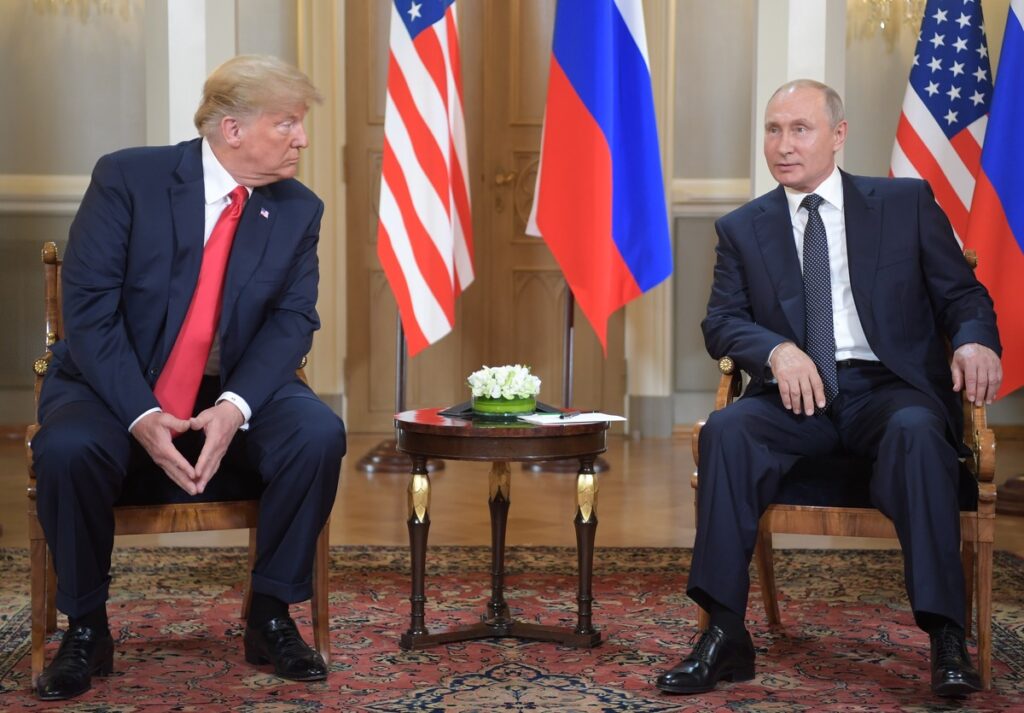Ukraine’s former prime minister told Newsweek he was “astonished” U.S. President Donald Trump would consider Russian President Vladimir Putin as a mediator for talks to bring Israeli and Iranian air strikes to an end.
Trump said at the weekend he would be “open” to the possibility of the Kremlin leader wading in as a mediator for talks between Iran and Israel. Putin “is ready,” Trump told an ABC reporter on Sunday. “He called me about it.”
The Kremlin leader told Trump Russia was willing to “engage in possible mediation efforts” with Israel and Iran, according to Kremlin aide Yuri Ushakov.
In an apparent cooling of his enthusiasm to involve the Kremlin chief in the Middle East strikes, Trump told the media on Wednesday: “Vladimir, let’s mediate Russia first — you can worry about this later.”
Trump pledged to end the war in Ukraine in just 24 hours, but six months into his second stint in office, the Republican has failed to get Russia to ink a ceasefire. Ukraine agreed to a U.S. proposal in March.
Trump has pursued a thawing in relations with the Kremlin and has personally flattered Putin, who launched Russia’s full-scale invasion of its neighbor in February 2022. But as Moscow intensified often lethal strikes on Ukrainian cities and progress toward a deal stalled, Trump’s criticism of the Russian leader grew sharper.
“I was frankly astonished that President Trump is even considering an option that Putin can be a mediator,” Arseniy Yatsenyuk, who served two terms as Ukraine’s prime minister between 2014 and 2016, told Newsweek.
“How can he [Putin] mediate if he has a security defense pact with Iran?” Yatsenyuk said.
Tehran last month ratified a two-decade strategic partnership with Moscow, bringing two countries commonly grouped under the “axis of evil” label closer together. The phrase is currently used to broadly refer to Russia, North Korea and Iran.
Iran has supplied Russia with its Shahed explosive drones, also known as kamikaze uncrewed aerial vehicles (UAVs) that have long menaced Ukrainian cities.
While slow-moving, the Shaheds—and the Russian domestically-made equivalents, the Geran drones—are hard for Ukraine’s overworked air defenses to detect.
The drones are known for their distinctive, low buzzing sound, and can carry warheads that shatter or explode when the UAV reaches its target.
U.S. and European officials told The Wall Street Journal last fall that Tehran had delivered short-range ballistic missiles to Moscow.
Russia has also received significant munitions and ballistic missile deliveries from North Korea, which last year became the first country outside the two countries at war to commit troops to the frontlines.
Ukraine’s military intelligence said earlier this month that Russia had agreed to help North Korea set up sites on the divided peninsula to manufacture Shahed drones, which would dramatically alter the threats countries like South Korea will have to contend with.
Putin is a “collaborator with the Iranian regime,” Yatsenyuk said.
Israel on Friday launched what it described as “preemptive” strikes on key Iranian sites and personnel linked to Tehran’s nuclear program, as well as the country’s ballistic missile facilities and other military installations. Iran responded with waves of drone and ballistic missile strikes.
Both Israel and the U.S. say they could not accept an Iran with nuclear weapons. Tehran says its program is peaceful, but its officials have publicly discussed the possibility of weaponizing nuclear sites.
Israeli authorities say 24 people have been killed in Israel and more than 800 people injured since Friday. Iran’s health ministry said earlier this week that 224 people had been killed in Israeli strikes, while a U.S.-based human rights group put the combined military and civilian death toll in Iran at 585 as of Wednesday.
Trump said on Wednesday Iran is seeking a “deal,” speaking shortly after Iran’s supreme leader, Ayatollah Ali Khameini, said Iran would cause the U.S. “irreparable harm” if Washington joins Israeli operations.
Speculation has surrounded whether the Republican president will authorize a U.S. entry into the conflict.
The ongoing question is whether Trump will deploy U.S. B-2 stealth bombers, equipped with bunker-busting bombs, to target Iran’s Fordow nuclear site. The facility, built under a mountain roughly 100 miles from Tehran, has not sustained any damage in Israeli strikes across the country, observers say.
B-2s carrying 30,000-pound GBU-57/B bombs, known as Massive Ordnance Penetrators, are widely considered the only viable choice for targeting the site.
Sergey Ryabkov, Russia’s deputy foreign minister, said on Wednesday that U.S. military involvement would “radically destabilise the entire situation.”
Read the full article here

